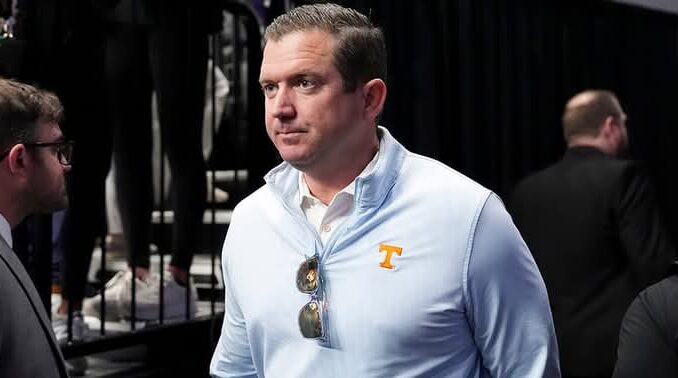
Tennessee’s Bold Stance: Athletic Director Danny White Embraces Collective Bargaining, Ushering in a New Era of Athlete Compensation in College Sports – A Paradigm Shift in the Collegiate Athletic Landscape
A Revolutionary Shift in College Athletics: Danny White’s Groundbreaking Support for Collective Bargaining Signals a Potential Restructuring of Athlete Compensation and the Future of Collegiate Sports
Knoxville, TN – In a groundbreaking declaration that promises to reshape the future of college athletics, Tennessee Athletic Director Danny White has publicly voiced his support for collective bargaining for student-athletes. This bold statement, released earlier today, marks a significant departure from the traditional model of amateurism and signals a potential paradigm shift in how college athletes are compensated and represented.
White’s announcement sends seismic waves through the already turbulent landscape of college sports, a realm grappling with evolving regulations, shifting public opinion, and ongoing debates regarding athlete compensation. His outspoken advocacy for collective bargaining places Tennessee at the forefront of a movement advocating for greater athlete rights and financial equity.
The statement, released through official university channels, underscores White’s belief in the need for a more equitable and just system for student-athletes. He cited the evolving landscape of college sports, acknowledging the significant financial contributions athletes make to the success of their universities, as a primary impetus for his support. He expressed a belief that collective bargaining empowers student-athletes to have a voice in shaping their own futures and negotiating fairer compensation models.
White’s endorsement is particularly noteworthy given the complex legal and ethical considerations surrounding athlete compensation in college sports. For decades, the NCAA has operated under a strict model of amateurism, limiting the financial benefits student-athletes can receive. However, recent legal challenges, social movements, and economic shifts have pushed the boundaries of this traditional approach, forcing institutions and governing bodies to reconsider their stance.
The decision to embrace collective bargaining is not without significant implications. It opens the door to the possibility of student-athletes forming unions, negotiating contracts, and collectively bargaining for better benefits, compensation, and improved working conditions. This could potentially encompass a wider array of compensation beyond simple scholarships, encompassing aspects such as image rights, endorsements, and even a share of revenue generated from their athletic performance.
The potential ramifications of this change are far-reaching. It could fundamentally alter the power dynamics within college athletics, shifting some control from university administrations and coaches to the athletes themselves. This transition could lead to more transparent financial practices, improved healthcare benefits for athletes, and a more equitable distribution of revenue generated from their athletic prowess.
However, the transition to a collective bargaining model is not without its challenges. The NCAA and other governing bodies will need to navigate intricate legal and regulatory frameworks to ensure a fair and equitable system. The process of establishing collective bargaining units, negotiating contracts, and addressing potential disputes will require careful consideration and collaboration.
White’s statement has already sparked a flurry of reactions from various stakeholders. Coaches, university administrators, and other athletic directors have voiced differing opinions on the implications of this bold move. Some express cautious optimism, seeing potential benefits in fostering a more equitable system, while others remain apprehensive about the potential disruption to the established structure of college sports.
Student-athletes themselves have largely expressed enthusiastic support for White’s stance, viewing it as a significant step towards recognizing their contributions and advocating for their rights. Many see this as a momentous step towards a more balanced relationship between the athletes and their universities.
The legal ramifications of White’s support are also expected to be substantial. Lawsuits and legal challenges are anticipated as universities across the country grapple with the implications of collective bargaining and its potential impact on existing NCAA regulations.
This development signals a pivotal moment in the history of college athletics. White’s decision marks a significant departure from traditional models and positions Tennessee as a leader in promoting a more equitable and sustainable system for student-athletes. The journey towards full implementation of collective bargaining will likely be lengthy and complex, requiring collaboration and compromise from all stakeholders. But White’s statement represents a bold step toward a future where college athletes are better compensated, better protected, and have a more significant voice in shaping their own futures within the world of collegiate sports. The consequences of this groundbreaking move are sure to resonate throughout the landscape of college athletics for years to come.
Leave a Reply